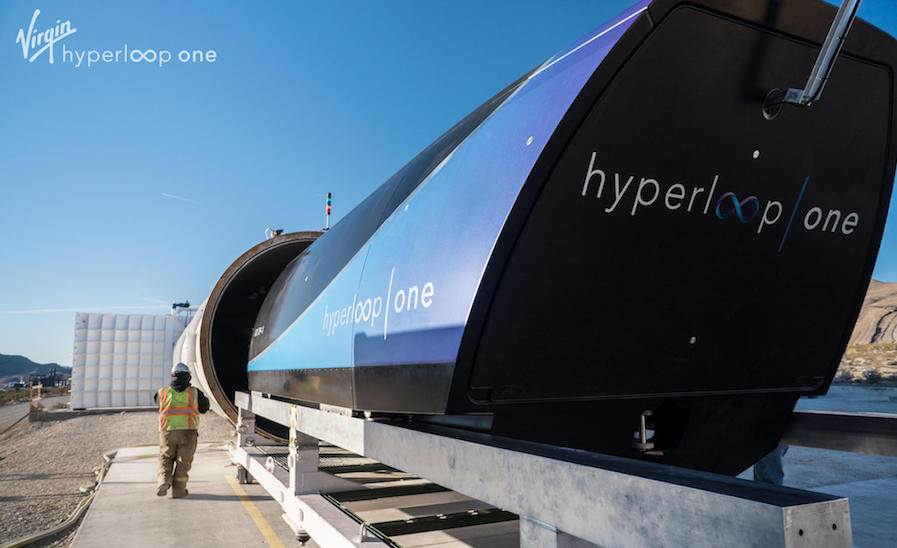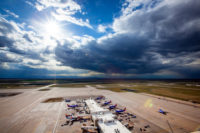Experimental Transportation
Colorado Hyperloop Hopes To Take Off From Denver Airport
How soon Richard Branson's estimated $24-billion project becomes reality is anybody's guess

Los Angeles-based Hyperloop One selected Colorado as one of ten routes that showed the greatest promise for developing full-scale hyperloop transportation systems.
Image: Courtesy of Virgin Hyperloop One
The public-private team seeking to bring hyperloop transit to Colorado has chosen Denver International Airport for the first station in a 360-mile ultra-high-speed travel system connecting 10 of the state's key urban areas. How soon the estimated $24-billion project becomes reality, however, is anybody's guess.
Last fall, Los Angeles-based Hyperloop One selected Colorado as one of 10 routes that showed the greatest promise for developing full-scale hyperloop transportation systems, in which pods travel through low-pressure tunnels at speeds approaching 700 mph. The proposed route calls for a north-south line between Fort Collins and Vail and an east-west route extending through downtown Denver and Vail.
Since then, the company has worked with the Colorado Dept. of Transportation and AECOM on a feasibility study examining transportation demand, economic benefits, and technical issues associated with the proposed routes. According to an initial report, the Colorado hyperloop system could ultimately handle 45 million trips in 2040 and generate $2 billion in revenue, serving a potential customer base of nearly 5 million riders.
Although the group has indicated that the north-south route's generally flat terrain is more favorable for the system's initial development, a host of regulatory and intermodal operability questions remains to be answered. The team has also yet to identify resources to pay for land acquisition, design and construction. Even with its interest in the hyperloop system, CDOT has dedicated no funding beyond preliminary studies.
Financed by entrepreneur Richard Branson, Hyperloop One is among several private-sector efforts to develop hyperloop technology around the world. The company has already constructed a 500-ft-long test facility in Nevada, and recently signed an agreement with India's government to build a fully operational demonstration track connecting the cities of Pune and Mumbai by 2021.



